Israel assault on Gaza huge economic gamble
The military costs of Israel's onslaught on the Gaza Strip, from the price of the missiles launched from the Iron Dome missile defense system to other military hardware, should be compared with the military cost for the Palestinian resistance factions.
We shall also take a look at how the economy of Israel has been ravaged due to the war.
Israel was just recovering from the COVID 19 pandemic. It had mass vaccinations underway and was hoping to get its economy going again.
Did investments in Israel fall? What about business closures? These are some things which Israel may have neglected to factor into its calculations of the cost of war.
There has been a call from the BDS movement, Boycott, Divestment, and Sanctions, to boycott firms complicit in Israel's illegal occupation of Palestine land. Did their voices get heard, did the international community react? These are some things that we shall delve into.
It was a brutal war. Israel bombed Gaza. There were civilian casualties on both sides; on the Israeli side, 11 were killed; on the Palestinian side, about 300.
It was disproportionate. But another area was also uneven, the number of rockets fired from the Gaza Strip.
Over 4000 Palestinian missiles were sent deep into the occupied territories, disrupting the lives of Israeli citizens and closing businesses across the occupied territories.
Israel had hoped to recover lost business from the pandemic. But those hopes will be scrapped for the time being.
It’s a disgrace this situation and we are not used to it here in Tel Aviv.
Israeli Citizen, Tel Aviv
Had Israel thought through the economic risks?
Israeli Citizen, Tel Aviv
Former UN Special Rapporteur on the situation of human rights in Palestine, Richard Falk, who has written for publications, including the Nation, Huffington Post, and Al Jazeera, gives us his views on the situation and its implications.
This war, that Israel has waged on the Gaza Strip, involving the shelling, and the bombing of Palestinians is costing Israel a lot.
First the military cost: The Iron Dome interceptors cost between $50,000 and $100,000 each. Palestinian factions have fired over 4000 missiles so far.
That is a lot of money spent trying to intercept these missiles; not to mention other military costs.
What do you make of that and how is it affecting Israel's economy?
Well I think it's a minor effect, as far as the encounter is concerned, it certainly has an impact on Israel, but Israel, I don't think will feel the pressure of the economic consequences of this upsurge of violence, as much as the political consequences, which are much more serious for them.
They have always emphasized in these military operations against Gaza that they are also field testing new weapons systems that they then are able to sell at a premium to other countries.
Richard Falk, Former UN Special Rapporteur on Human Rights in Palestine
When Israel decided to crack down so harshly on Palestinians who wanted to pray at the al-Aqsa mosque compound, which eventually led to the Gaza war, had it calculated the economic losses of its offensive?
Well here's a snapshot of how Israel was doing up until the war.

In the years 2018 and 2019, there was modest growth, 3.5% and 3.4% respectively. But then there was a dip, a GDP contraction of over 20% for the year 2020.
Economic growth expectations were high for 2021 due to the vaccination of more than 50% of the population. But the 6.3% growth rate projection failed to materialize.
The unemployment figure in Israel was shockingly high relative to the GDP contraction. Prior to COVID-19 the unemployment rate, which was reported at that time, was a little over 30%, prior to the pandemic but it surged beyond 30% last year, counting employees who were on furlough.
After the vaccination program, it decreased to 16.7% for the month of February.
Unemployment in Israel
The economic fallout from COVID-19 had a devastating impact on many sectors across the board. The rates stood at 30% last year, which is also reflective of an inequality problem that Israel is facing.
So juxtaposing these economic indicators it’s easy to see that the Israeli economy was not doing that well going into the war.
Of course, you wouldn't know that listening to the Prime Minister. This is what he had to say when asked about the situation:
This is a great day. We’re opening with a green passport restaurant, coming back to life. We still have to watch out for rockets, keep our distance from each other ... but we're coming out of it.
Benjamin Netanyahu, Israeli Prime Minister
Very optimistic, one could say. Well, here is the most shocking fact about Israel's economy, something that Israel always seems to boast about, that it's doing well, that it has an advanced economy.
This opinion, however, couldn't be further from the truth.
We also discussed Israel's unique, and frankly deeply troubling predicament, as a democracy grappling with a pandemic, in the context of a constitutional crisis, that has left the political system virtually paralyzed..
Presenter, i24, Israeli TV Channel
Let's review what he said, because it's very important and, yet again, it's something that's under the radar, it's not really covered that much.
First of all, at the time the COVID-19 pandemic struck Israel, Israel suffered a recession. So that's number one.
Then you had business closures that happened as a result of that, of course the pandemic led to business closures, and it also suffered from unemployment, these are all economic factors that have contributed to Israel's economic crisis.
Now, Israel has had elections four times for the position of Prime Minister but without a clear winner. So it is suffering, therefore, from a constitutional crisis which has not only left the political system paralyzed, but has also affected its budget and subsequent spending.
As a result, Israel, incredibly, has had to contend with a pandemic without a state budget. Believe it or not, we're still running on a budget conceived in 2017, and the current government is on the verge of collapse because it has failed to pass a budget for the remainder of 2020, let alone, 2021.
Presenter, i24, Israeli TV Channel
We can see how badly Israel is doing, no budget for 2020 and no budget for the year 2021. So how can it operate, how can it spend money without a budget? How did things become so bad and how did Israel spiral into what many have called both an economic and political bankruptcy?
Why wage a war with an economy that is obviously not on a stable footing?
Blaine Coleman is an activist for the BDS movement; he's also a commentator at public meetings at the Ann Arbour City Council, and at the Central Student Government of the University of Michigan.
This is him in action at the Ann Arbour Human Rights Commission taking a stance on the US military aid to Israel, which gives us a sense of his stance with regard to Israel.
Up to now, no American city council has passed a resolution to cut off military aid to Israel, and asking to cut off military aid to Israel is a very, very modest, very modest proposal, considering how they've used that military aid to massacre many, many Palestinians.
I don't have to tell you that Israel shot down 1000s of Human Rights demonstrators, who are Palestinian in Gaza, who are unarmed human rights demonstrators; Israel shot them down.
Blaine Coleman, Activist, BDS Movement
The fighting with Hamas has weakened Israel's economic growth for quarter 1, and may dent Israeli economic growth for the year 2021.
The economy contracted by 6.5% in the first quarter which the Central Bureau of Statistics asserts could curb its economic recovery from the pandemic.
Had Israel factored this into its economic projections when it waged the war?
Well, you know, I don't read Haaretz and Jerusalem Post and their Zionist press, so I don't know what they're thinking, but I imagine that they have figured all of those economic costs in.
I can tell you that apartheid South Africa had all kinds of costs like that, while it was, you know, wreaking havoc across Africa in the 1970s and 80s. And I imagine their economy contracted a bit.
This is not what doomed apartheid South Africa, the dollars and cents. What doomed them is the political cost of the whole world just hating apartheid South Africa for being a violent, racist state. And that is the only reason they couldn't carry on, not the money part.
Israel is now in the same area of its political decline. They can replace the money, they can have their economy contract, or un-contract, and that’s not their problem.
Their problem is that the world is more willing to hate them, and especially, the United States public is more willing to hate them for their racism. Does Israel still have a majority of the US public behind it? Yeah, but a sizable disgusted minority of the US public really hates the racism in the apartheid of Israel.
Blaine Coleman, Activist, BDS Movement
Israel took huge economic gamble when it assaulted Gaza
The Israeli war on Gaza came with a cost, in more ways than one.
First there is the military cost, the cost of the iron dome interceptor missiles, estimated to be anywhere from $50,000 to $100,000 per unit.
This is while the cost of rockets fires by Hamas is somewhere between $300 and $800 each.
The difference in costs are huge, but what is of far greater importance is that rockets fired by Hamas are draining tens of millions of dollars from the Israeli economy at comparatively little cost to themselves.
The Iron Dome is estimated to have intercepted around 4000 rockets at a cost of $200 million.
Israel says its military inflicted a heavy toll on the Palestinians, but did it achieve its purported objectives?
I have just come from the Israeli army operational command centre in the Kirya. It is very impressive. With every passing day we are striking at more of the terrorist organizations' capabilities, targeting more senior commanders, toppling more terrorist buildings and hitting more weaponry stockpiles. Just as I told the ambassadors here today, this is the natural right of Israel.
Benjamin Netanyahu, Israeli Prime Minister
Victory is hard to quantify In light of the military costs. There are those who profit from such wars, above all, the weapons manufacturers who provide the Israeli military with weaponry, namely, the US.
The US provides Israel with around $4 billion in military aid. The catch, Israel needs to buy all of US military arsenal, from the US.
Is that why the US was not so quick to lend a hand with stopping this war?
As we've said before, Israel has the right to defend itself.
Antony Blinken, US Secretary of State
I want to read something, a mother (in Palestine) wrote two days ago. She said "tonight, I put the kids to sleep in our bedroom, so that when we die, we die together. And no one would live to mourn the loss of another".
Rashida Harbi Tlaib, US Congresswoman
There is no equivalence between a terrorist group indiscriminately firing rockets at civilians, and a country defending its people.
Antony Blinken, US Secretary of State
This statement broke me a little more because of my country's policies and funding will deny this Mother's rights to see children live, her own children live without fear, and to grow old without painful trauma and violence.
We must condition aid to Israel on compliance with international human rights and end the apartheid. We must, with no hesitation, demand that our country recognise the unconditional support of Israel has enabled the erasure of Palestinian life and the denial of the rights of millions of refugees.
Rashida Harbi Tlaib, US Congresswoman
Facts and figures favour Palestine
The numbers are out; Israel's defeat at the hands of the resistance came with a cost.
The economic cost for Israel, over the course of the recent war, is reported to be $37 million per day. Another source puts that figure at almost double, $61 million a day. Neither figure is good for Israel, which is trying to recover from a pandemic hit economic recession.
The war has decreased Israel's economic growth, especially coming out of a quarter that saw a 6.5% contraction. Israel's economy was projected to grow between 5% and 7% this year on the heels of a rapid vaccination roll-out.
Because of the war, consumer and government spending and investment fell in the quarter, while exports grew.
After all, how can business confidence and investment rates remain high when Hamas rockets have reached areas in occupied Palestine that it had never reached before?
The key challenge facing Israel is how much civil unrest there will be in the occupied West Bank. For example, there was a one day general strike across Palestine. All businesses were shut.
How many more of these shutdowns can Israel endure?
The BDS movement
The BDS movement, Boycott, Divestment and Sanction, which began years ago, has been very successful in its intentions, and in its goals, in this case against Israel.
There have been a number of products that have been boycotted as a result, products coming from Israel. It was responsible for the ending of the apartheid regime in South Africa, but let's find out what guests think about this, we're going to have the former UN Special Rapporteur Richard Falk rejoined us for this Richard
The BDS movement has urged a military embargo on Israel, a boycott of firms that are complicit in Israel's occupation.
It also is calling for the cancellation of academic, cultural and sporting events.
Do you think there's enough momentum behind the call by the BDS to basically embargo Israel?
Yes, I think it is, I think it is different, how different is uncertain. But I do think that there will be a greater show of support around the world for the BDS campaign, and specifically favoring an arms embargo. And that will have some effect. And it will also, I think, have an effect on these normalization agreements that were reached in the last period of the Trump presidency, and gave Israel, a certain political sense that they could ignore Palestinian grievances and still have benevolent relations with their Arab neighbors, and particularly, the Gulf countries.
Richard Falk, Former UN Special Rapporteur on Human Rights in Palestine
A war that appears to erupt every few years
The war on Gaza is said to have ended. Well, it has not; forget about the ceasefire, you can't have a ceasefire in a conflict that is over 60 years old.
So, what is the solution Palestinians need to prosper economically?
For one thing, the occupied land needs to not be occupied or have an occupation regime executing its apartheid policies; that just can't happen.
One solution would be to hold a referendum, a referendum to be held among the original Palestinians.
In this way, the governance issue, at least, can be solved and most likely the rest is going to fall into place.
As for the issue of the US as a broker for the peace process, well that just hasn't worked. The last time around it was called the deal of the century.
Where is the deal now, gathering dust, along with one of its architects, Jared Kushner, Trump's son in law who considers the Palestinian Israeli issue a real estate transaction issue?
'It was not a strike': Iran FM dismisses Israeli weapons as 'children toys'
The struggles of Occupied Palestine
Saadi Day: Ayatollah Khamenei exalts great Persian poet
Iran’s Civil Defense examines country’s preparation for potential threats
FBI chief: Chinese hackers targeting critical US infrastructure
New York Times leaked memo on Gaza coverage reveals obfuscation of facts
VIDEO | Press TV's news headlines
Barbados officially announces recognition of Palestine as state


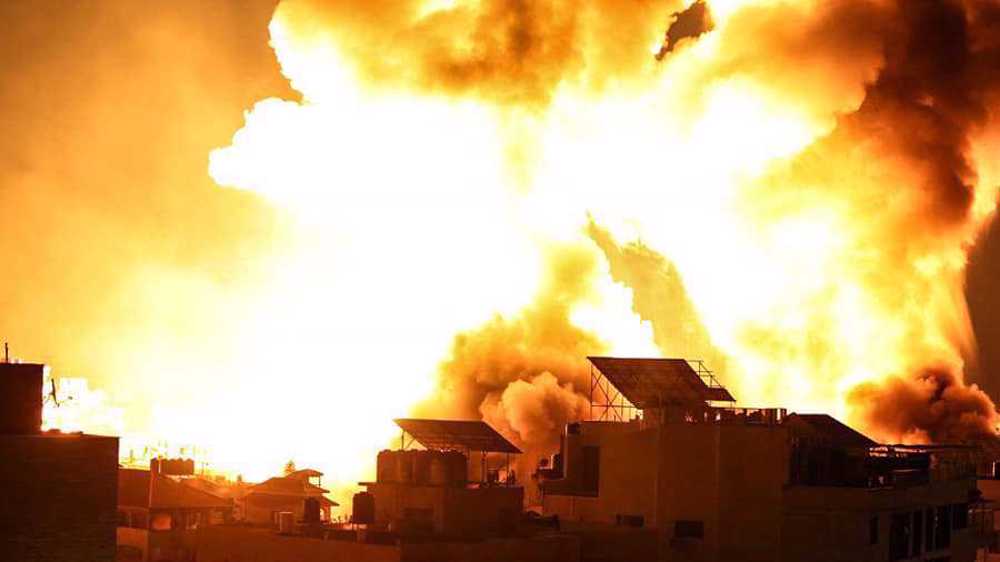







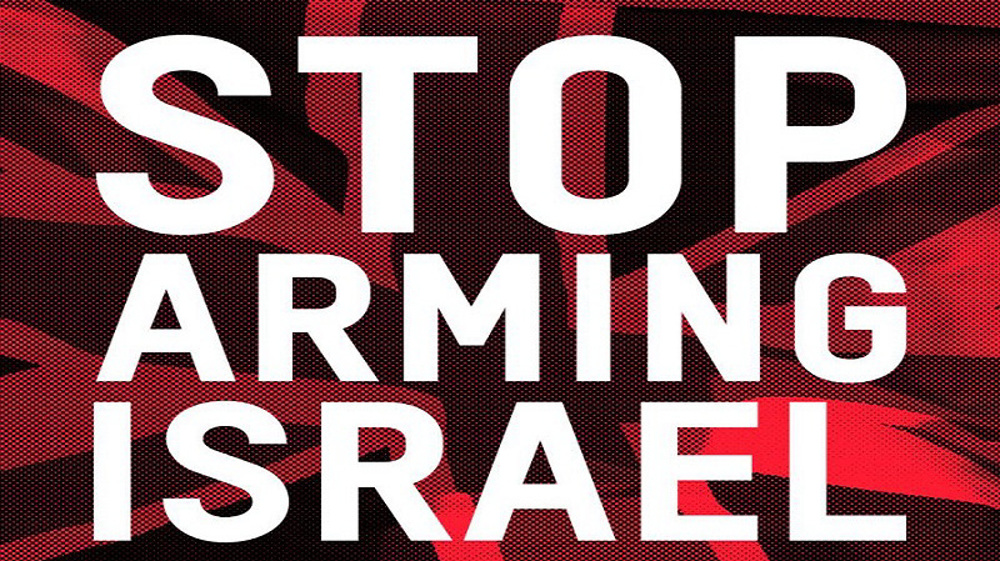
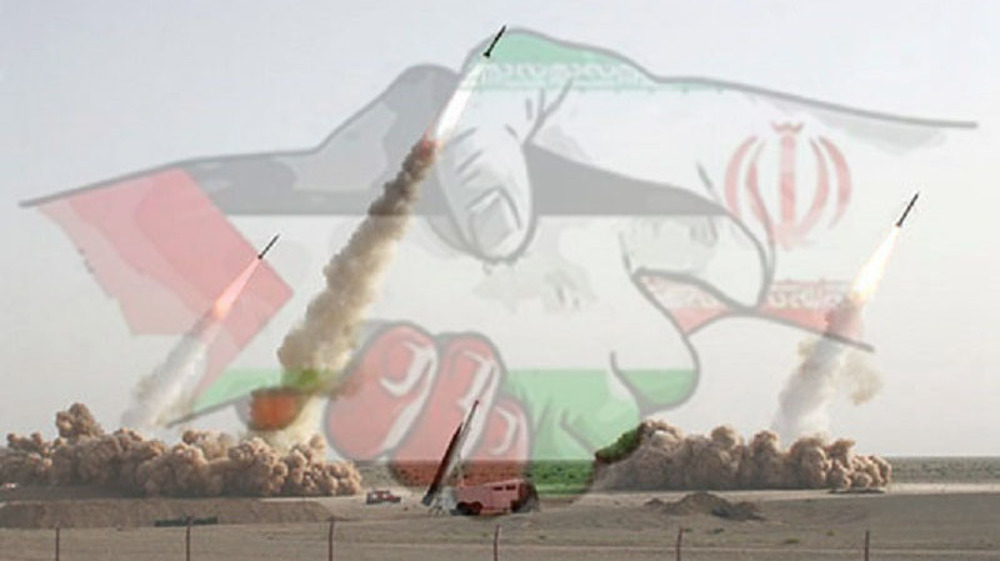



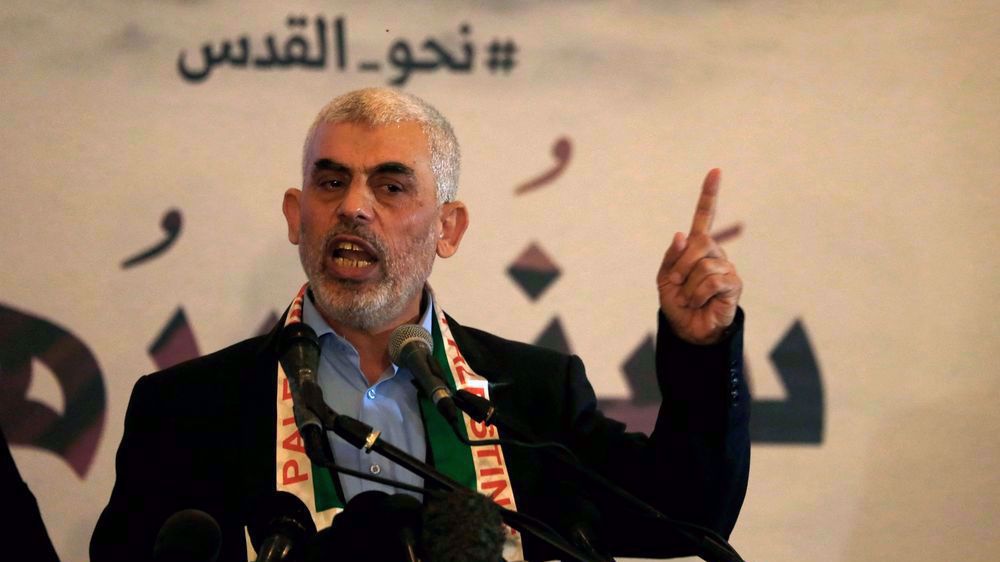
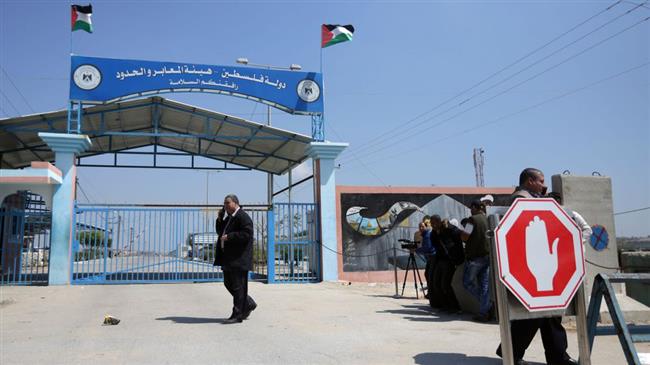

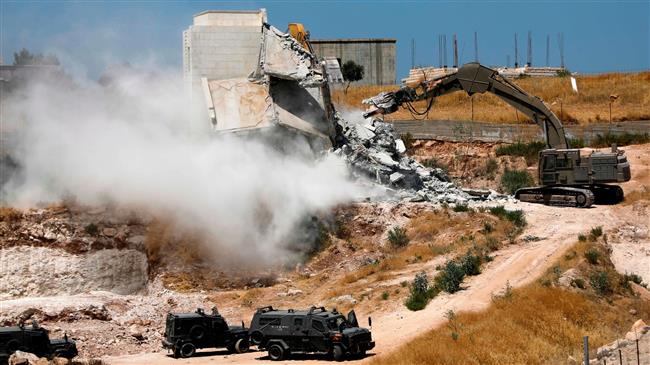
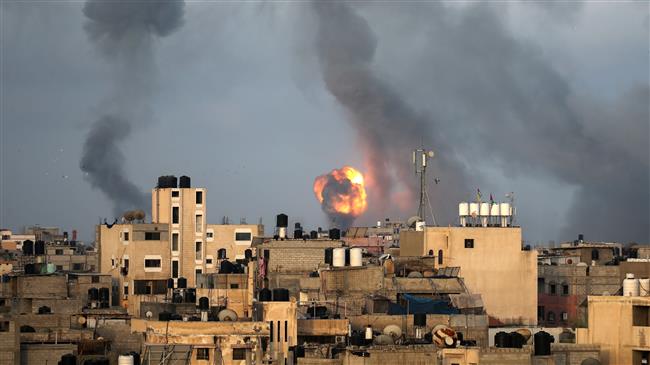
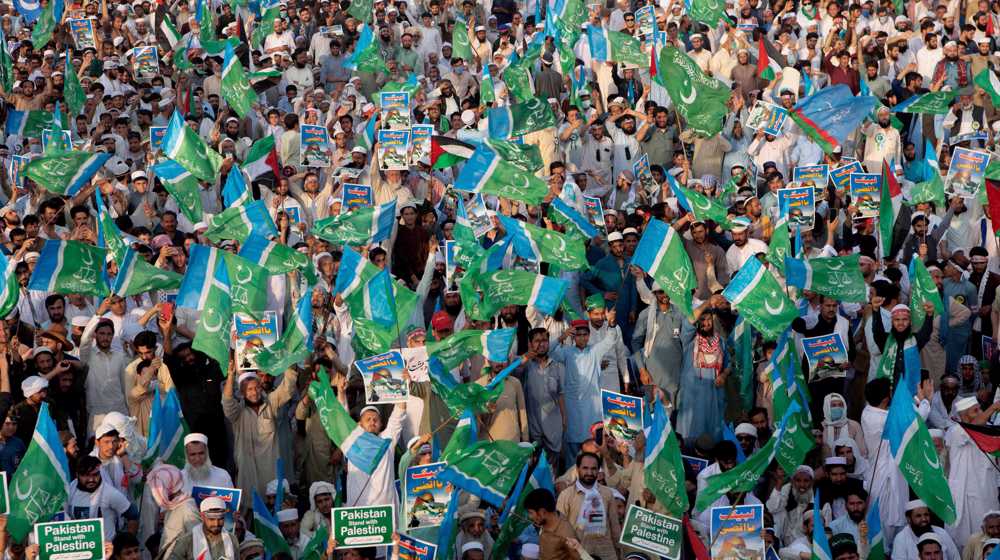


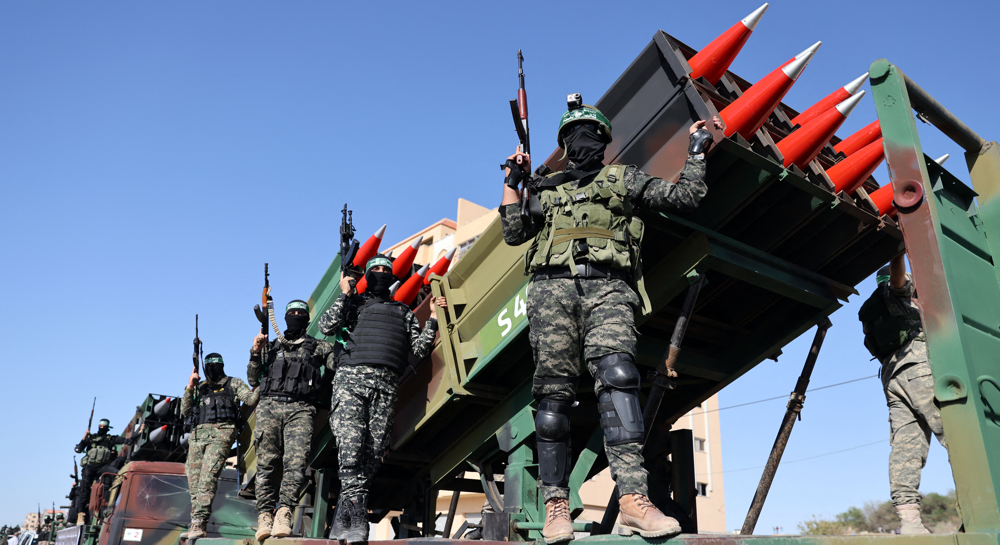
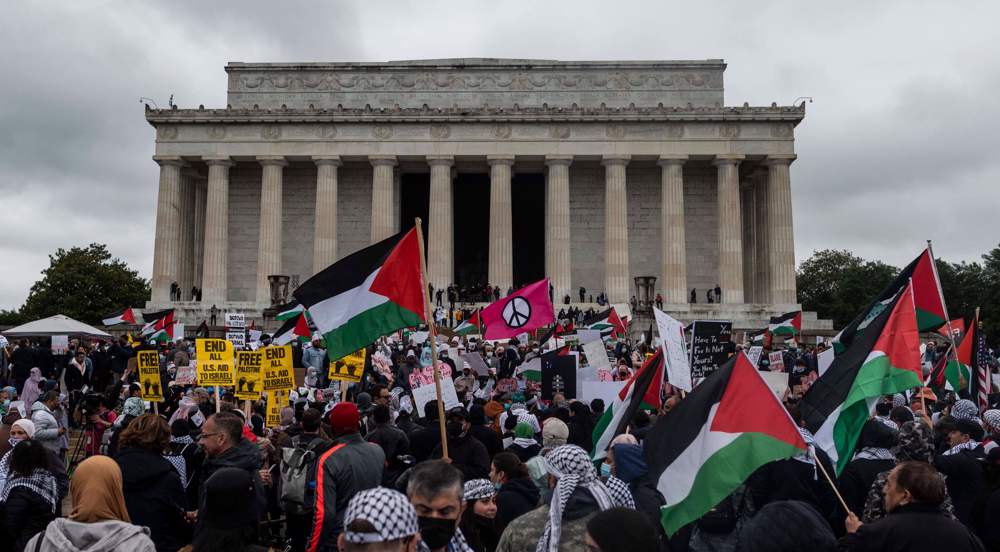

 This makes it easy to access the Press TV website
This makes it easy to access the Press TV website